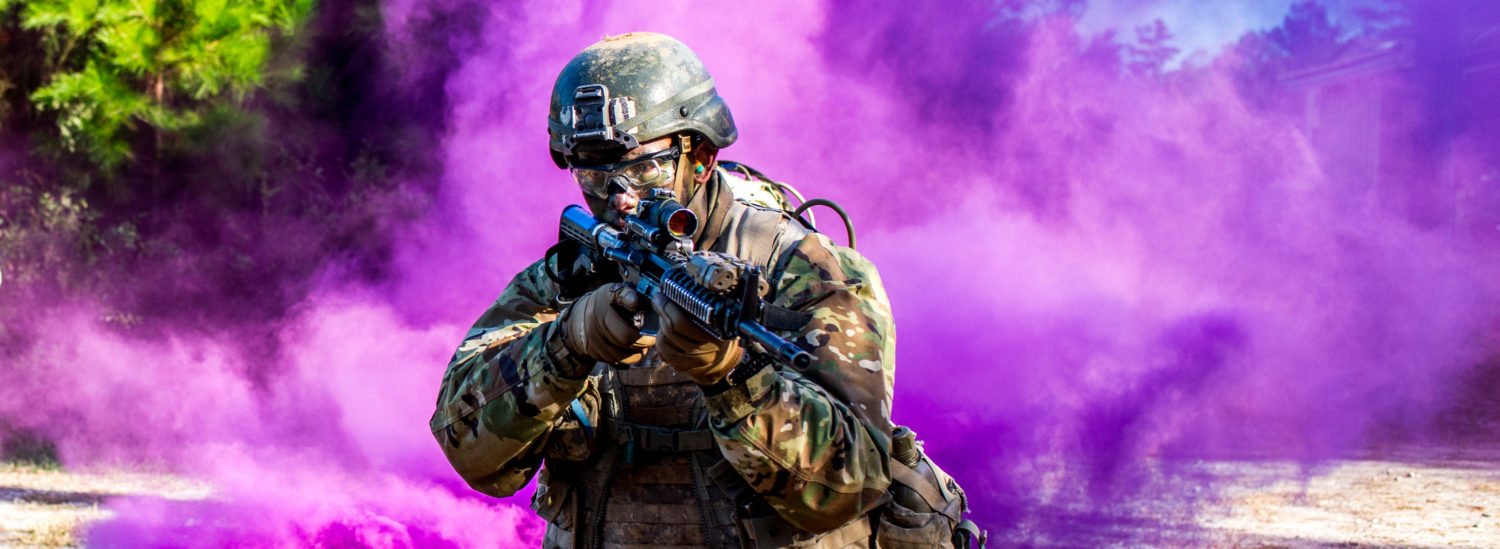A Signal Corps officer’s success, much like any leader, depends greatly on his or her ability to create effective teams. Bending an organization to the will of the leader stifles junior leader initiative. It fails to maximize the positive and dynamic impact of junior and senior non-commissioned officers (NCOs). These leaders, when actively engaged, create forward organizational momentum. Leaders do this by creating a family-centric team and engaging individuals on a personal level. As a young Lieutenant (1st Lt.) serving at Fort Bragg as the 519th MI BN S6, this is the greatest lesson I had the privilege of learning from my Battalion Commander. Then Lieutenant Colonel (Lt. Col.) Joshua Fulmer created a robust team that was able to push the organization into new heights by making subordinate leaders feel necessary.

Small Teams – RETRANS Leadership
Emulating Lt. Col. Fulmer’s approach to team building has helped me to cultivate a professional standard with my teams. My success has centered on creating small effective teams that can see their place in the larger organization. My initial goal as a leader is to establish teams or strengthen the existing ones to a point of autonomy. Emphasizing a sense of service, to each other and the profession, serves as a primary motivator towards mission accomplishment.

By focusing an objective into an act of service to the whole the individuals and teams begin thinking altruistically which in a support field will integrate them into the unit’s mission. A RETRANS team that can see its role in the support and protection of the line unit operates staggeringly more effectively than one that is seeking to avoid reprisal for fallen links. This mentality of raising your peers with you to accomplish a mission often eludes leaders while they are young and developing.
Finish Together to Finish First
As a Cadet, due to the competitive environment, I was often focused on out-achieving my fellow Cadets. By focuses on out-achieving others, instead of bringing up the whole, I found myself alone. Sometimes I achieved my goal, but often times I did not. Too young to understand the futility in charging ahead with my small portion of a plan or operation, I was forced to back track so I could re-integrate myself into the overall plan.
As counter intuitive as the notion of the whole was to me as a Cadet, being in the front of the formation is meaningless if the rear of the formation is still minutes behind. By focusing on creating goals that bring the whole to the finishing line, you not only accomplish you goals but also give permission to the group to identify efficiencies you may have missed. A cooperative approach to leadership is not immediately apparent to most young leaders. But, the best officers I have worked with – especially Signal Corps officers – were collaborative.
Humility and Servant Leadership
When evaluating junior leaders above all else I am looking for individuals who lead and act with humility. Perhaps, the most challenging virtue for any leader is humility. It provides the perspective necessary to place the organization, and its mission, first. Although confidence is critical to leading, there is a fine line between self-confidence and cockiness or “fool hardiness”.
 I expect junior leaders to see themselves as servants to the organization and their role to provide and plan support to that end. With humility, a leader can establish a team that is not centered on personal gain. Servant leadership creates teams focused on the good of the organization and the mission. Especially in the service oriented profession of Signal Corps, humility is critical to success.
I expect junior leaders to see themselves as servants to the organization and their role to provide and plan support to that end. With humility, a leader can establish a team that is not centered on personal gain. Servant leadership creates teams focused on the good of the organization and the mission. Especially in the service oriented profession of Signal Corps, humility is critical to success.
If They Can’t Talk…
An effective Signal leader effectively understands the challenges of the tactical environment. With that understanding, he or she employs their technical proficiency to exploit terrain and tactical advantages in their network. The margins for error for a Signal Officer is so slim. If a leader on the ground cannot talk to their higher headquarters or enablers, their Soldiers’ lives are in danger. A failure to understand the physics of wave form diffraction and its application to terrain can result in lives lost.
Finally, Signal Officers strive to create a stable and robust communications plan for their unit. They work to utilize multiple transmission forms to enable frontline Soldiers to find, fix, and destroy the enemy. Signal Corps Lieutenants should passionately seek out the mechanics and mathematics of each technology at their disposal. They should constantly think of new applications and ways to achieve their mission. The networks we create and nurture, connect young Soldiers – whose lives are in danger – to support. Remaining focused on these facts, should motivate Signal Officers to remain technically and tactically proficient.
Click Here for other #BranchSeries Posts!
Complete archive of The Company Leader Posts
Subscribe to The Company Leader!

